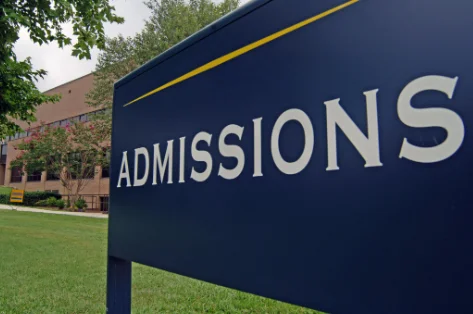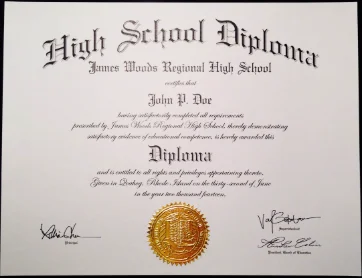Secondary or High school education is a basic educational level that provides children with the knowledge, skills, and competencies required for entry into higher levels of education.
However, which types of post-secondary programs lead to what careers? These questions and more will get answered here in this article on tertiary education in the United States.
What comes after Secondary?
Secondary education is the stage of education that occurs after primary school. It is the last stage of formal schooling in many countries and provides an opportunity for students to complete their basic education, train for a particular profession or trade, or prepare for higher education.

After secondary education, people usually enter higher education institutions like universities or colleges to pursue bachelors and master’s degrees.
At that time, most people are still under the guardianship of parents or guardians who want them to be good examples for other family members.
They also want them to be responsible enough since they have responsibilities and rights given by law, like voting rights, driving licenses, etc.
Also Read: How to Address a Teacher in an Email or in College
Explain the Following Post-Secondary Education Institutions;
1. College
College is a post-secondary education institution. It is a place where students can get their degrees or diploma. College may also be a place where students can learn more about their chosen field and life in general.
A college has classes for students to attend, such as math and science courses, English language classes, and other classes that help prepare students for the world of work or further education at a university.
Colleges also offer programs for non-credit learning, such as community service activities or workshops on cooking or sewing.
2. University
University is a type of post-secondary education institution. University is an educational institution that provides higher learning to students. It is controlled by the state or federal government.

State universities are also known as public universities, and they are funded by the states using state taxes. Private organizations run private universities, mostly financed through donations, endowments, and tuition fees.
University is not only a place where you can learn more about engineering or medicine; it’s also where you can discover your true potential as an individual, gain new skills, participate in fun activities and meet like-minded people!
3. Post-Graduate
Post-graduate education is training people who have already finished their undergraduate studies but wish to continue.
Graduates may study for a degree to obtain qualifications within their chosen field. They may also be undertaking postgraduate research or study to gain practical experience in their chosen field.
The most common types of post-graduate courses include:
- Research degrees enable students to pursue personal interest projects without having to submit them as part of a degree program.
- Professional doctorates help graduates to gain experience and develop new skills.
- Master’s degrees offer students the opportunity to study at an advanced level within their area of interest.
Postgraduate study is often undertaken by those who have completed an undergraduate degree to gain specialist knowledge and skills to help them progress up the career ladder or start their own business.
While some individuals choose this route purely for personal reasons, others do so because they want more time from work after completing their studies than they would if they were simply continuing their careers.
What is Secondary or High School?
Secondary education is the first step on a lifelong journey that may or may not make you one of America’s greatest inventions of all time.

Secondary education is the basic education given in secondary schools. It is divided into two parts, secondary and high school.
Secondary school is for students who have passed primary school and are eligible for getting admission to high school.
Also, secondary or high school is the educational level at which one completes secondary education. It is the second stage of compulsory education in most countries and developed countries, after elementary school.
The word “secondary” refers to the fact that it is the second level of education, on par with primary education.
What is Post-Secondary Education?
Post-secondary education is a broad term that refers to education at colleges, universities, and other institutions of higher learning. It includes public and private schools, as well as vocational schools.
Post-secondary education can get obtained through high school or college. If you are interested in post-secondary education, it’s important to understand what types of programs exist and what you can expect from each level of education.
Also Read: College Ruled vs Wide Ruled Paper Dimensions
How to Succeed after High School
Earn Your Way
Earn your way means that you have a plan for how you will earn money and support yourself once you leave school. The best plans are ones that allow you to get started right away, even if it takes years for them to pay off.
They are flexible and scalable so that you can adjust your plan accordingly if something unexpected happens, like getting laid off, or if your income level changes over time, like getting married or having children.
They also involve making practical sacrifices now in exchange for the possibility of better things later on. If these sacrifices seem too great or impractical at first glance, don’t worry: eventually, they will become easy and natural.
Grow a Backbone
There are no shortcuts to success. You must work hard, be persistent and never give up. But if you want to get ahead, there is one more thing you should do: learn how to think like a winner.

Winners think differently than the masses. They do the following:
- They do not mind using their heads instead of their hearts when making decisions;
- They are not afraid of failure;
- They are not afraid of risk; they do not expect others to do things for them;
- They can handle rejection; they have confidence in themselves and their abilities;
- They believe that anything is possible if you work hard enough at it, and lastly,
- They understand how important it is for them to take responsibility for their actions and for their own lives.
Also Read: Does Class Attendance matter? Count in Final Grade
How to Study well in Tertiary Educational Institutions
Get Organized
Start each day off by getting organized. You should have a place for everything, and everything should have a place.
This includes putting away your books and materials as soon as you’re done with them so that they don’t clutter up your desk or room later on when you are trying to study.
It is also a good idea to declutter your desk area so that it’s easy for you to find what you need when needed for example, if something is sitting on top of your book bag.
Make a Study Schedule
If you are interested in studying at a university or college, you must know how to make a study schedule. Your schedule will help you stay on track and avoid procrastination.
Making a study schedule will also give you an idea of what your studies will be like each day and how long each subject will take. It will also help you know when to start each subject so that it does not get too much out of hand.
Join a Study Group
A study group is a group of people who have the same goal as you and are willing to help each other. This can be either for different subjects or one subject, but everyone must want to learn and has the same goal.
If you want to learn more about something, talk to someone who knows. If you want to get better at something, talk to someone who has already mastered it.
Ask them questions and try not just listening but also asking questions yourself to understand why they did what they did. This way, your knowledge will grow faster and become even more useful for yourself and others.

